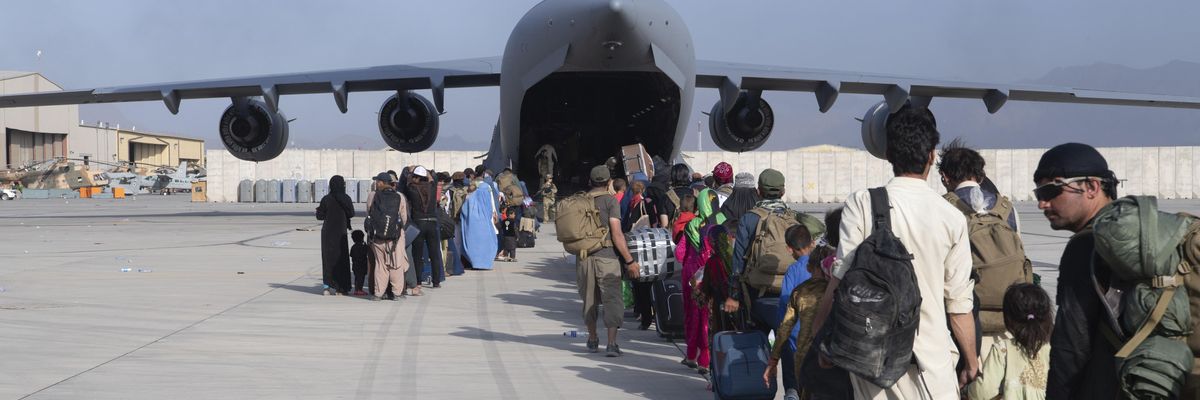The massive airlift from the Kabul airport was an impressive demonstration of the American military's technical and organizational skills. At the height of the operation, 42 large cargo planes departed within every 24 hours, which means one departure every 35 minutes. Considering the considerable time it takes to have 400+ passengers board a C-17 military transport plane and get the plane ready for departure, there must have been several planes in various stages of boarding on the tarmac at all times -- and all that with a single runway for landing and departure!
The military not only organized the boarding and departures like clockwork. They also managed the entire airport, from air traffic control and security to logistics on the ground. Moreover, the Kabul International Airport had been transformed into a huge haven for numerous people seeking shelter -- civilians, staff from various embassies, and others. Obviously, they all needed housing, food, sanitation, and a secure environment. After the initial chaos, understandable in such extraordinary logistical complexity, the military largely met these challenges and managed to evacuate a total of about 117,000 in two weeks.
This does not in any way deny the tragic failure of America's military intervention in Afghanistan. But just imagine what the world would be like if the US military used its awesome technical and organizational skills to help other people in need on a regular basis. What if the military changed its mission from supporting corporate interests and US Imperialism to helping people in need around the world? What if it became the world's Good Samaritan? As demonstrated with the Kabul airlift, the military has the capability to transport massive quantities of food, medicines, tents, etc., to any disaster area, in any part of the world, within hours.
If the US military made running a permanent global emergency support system a central part of its mission, this would dramatically change the image of the United States around the world. Consequently, it would dramatically increase American national security, and the President would be fully justified in financing the program out of the Pentagon budget. Vast funds could be used to feed people in need rather than feeding the military-industrial complex.
Now, go a step further and imagine the military not only responding to emergency situations, like earthquakes or climate emergencies but also engaging proactively to prevent such emergencies. For example, we know today that planting trees is the cheapest and most effective technology to draw down CO2 from the atmosphere and stabilize the climate. An authoritative study by scientists at the Swiss university ETH Zurich (published in Science in July 2019) has shown that 1.2 trillion trees could be planted globally without encroaching on cropland or urban areas and that these trees would remove two-thirds of all emissions pumped into the atmosphere by human activities.
Imagine the US military engaging in a massive global tree-planting project, supporting and scaling up the many existing projects developed by NGOs around the world. This would permanently solve the climate crisis (assuming that the current decline of fossil-fuel use will continue). Dealing successfully with the climate crisis, the military would thus remove what its own Joint Chiefs of Staff have identified as the biggest threat to American national security.
And finally, imagine the morale boost and psychological relief for our men and women in uniform if they were trained to help people in need around the world, rather than to drop bombs on them.
Imagine!
